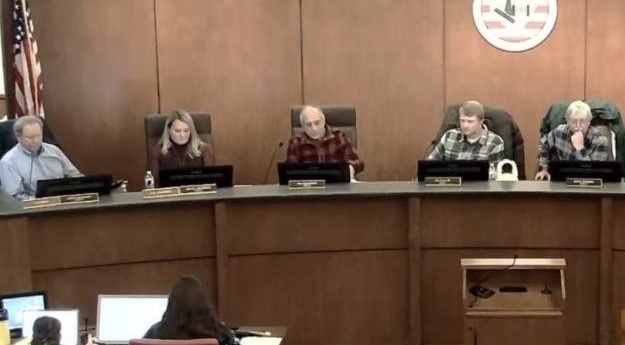From the Editor’s Desk: The rules in Buckingham need to change
Published 2:48 pm Friday, February 3, 2023
|
Getting your Trinity Audio player ready...
|
It’s not about the property. It’s not about a yes or no. It’s about information or rather the lack thereof in some cases. On Monday, Jan. 23, Buckingham County’s Planning Commission met for their regular monthly meeting. For the third time, they heard Olympia Moore’s request to change her 13.77 acre parcel of land’s zoning from agricultural to business. And for the third time, there were some issues.
Now the property sits at 29662 N. James Madison Highway in New Canton, in the middle of one of Buckingham’s designated growth areas. The designated growth areas are where the county officials hope to drive businesses to move in over the next few years. It does strike me as odd that county officials would designate an area for business growth, but not actually push for a zoning change so businesses would be allowed in said area. It’s like announcing “I want to see an Applebee’s or Checkered Pig move in” as a campaign speech, but then not following up to make that actually happen. Anyone can see that to attract businesses, you’d have to change the zoning. And yet, that hasn’t happened. As I said, it just strikes me as odd.
Anyway, Moore says she has no plans for the property. There’s no business in mind, she just wants to make a change, in hopes of attracting one. And that is absolutely what the rules allow. According to Buckingham’s own zoning ordinance, you can go up to the planning commission, ask for a zoning change and present no information about what type of business you’re looking to bring in. And as I mentioned before, it’s understandable why someone looking to sell or lease their property would want to make that switch.
Buckingham’s agricultural district allows greenhouses, garden shops, home-based service businesses, any farm-related businesses and that’s it, unless you go through the special use permitting process. And most businesses don’t want to deal with the hassle of that three to four month process, so they move on.
A business district in Buckingham, on the other hand, allows everything from retail stores to restaurants, apartments to arts and crafts stores, barber shops, grocery stores, banks, bakeries, butchers, candy shops, private golf courses, drug stores hotels, museums, sporting goods and auto repair, to name a few. You can see where that would be more attractive to a would-be business owner or a property owner looking to sell.
So on that side, it seems logical to ask for a shift from agriculture to business zoning, especially in a designated growth zone. And let’s get this out of the way right now. My issue isn’t with the property or the request to change. My issue is with the process, the way these things are supposed to be done.
In this case, the issue several planning commission members had with Moore’s request is it’s not complete. There’s no traffic study from the Virginia Department of Transportation and, since she has no plans for the property, most of the rest of the application is blank as well. The planning department staff said it’s typical for the commission to send such applicants to a public hearing, where they’re aware that in order to move farther, all documentation would have to be completed.
Why? Why are we asking a planning commission to do that? Why send an admittedly unfinished application to a public hearing? At that point, shouldn’t all the i’s be dotted and t’s crossed? At this point, how do we have enough information to hold a public hearing? How is a next door neighbor supposed to decide if they’re for or against something, when they don’t know what it will be?
That’s how things get approved in different places and residents get upset after the fact. And then they’re told “well, you should have spoken at the public hearing”. How? They didn’t have enough information. They’re just told this decision could change the zoning. Ok. Most people have no idea what that means. The next question will be what kind of business would be moving in? Well, we can give you the list mentioned earlier, but that’s the best we can do. We really don’t know. What kind of changes will this mean for our schools? What will this do to traffic? Again, we don’t know any of that until a company applies to move in.
I’d argue the process needs to be slowed down. Even if you don’t have a specific project in mind, we need to have all the required information in hand before going from step one to step two.
Maybe that provides enough information so neighbors can decide if they’re for or against something. Maybe it makes things easier for commission members, when they have to vote. What it would guarantee is that only finished applications make it to a public hearing, which would waste less of the planning commission’s time. After all, why debate and discuss when the project’s not finished? You’ll just end up doing it again next month.
Yes, that means some people or companies won’t apply. But in cases where you don’t even have any plans for a property, I’d argue everyone can afford to wait.



